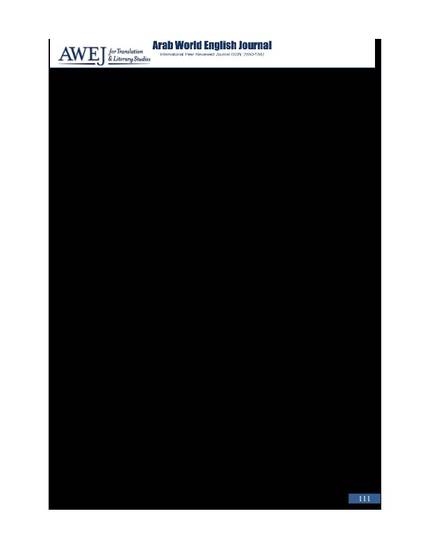
Article
Doris Lessing’s Our Friend Judith as a Projection of Liberal Feminism
AWEJ for Translation & Literary Studies
(2022)
Abstract
The current study attempts to provide light on Doris Lessing’s prominence as one of the most influential English novelists of the 1960s. She is an author who is interested in the portrayal of Western women’s identities of 20th-century English society. She has presented the socio-economic status of women in the masculine society through the characters of Judith and Betty. This study would like to demonstrate Lessing’s treatment of the question of socio-economic, and cultural inequalities with regard to women of modern times as reflected in Our Friend Judith. Judith represents a generation of open-minded, strong, independent, and unfettered women who support liberal causes for other women with dedication and noble mission. On the other hand, Betty has matched herself with the features of a nomad because of her traditional imprisonment. So, this study aims to foster a difference between a liberal woman and a traditional woman to foster the practical picture of women’s status in the masculine society. It would like to examine Lessing’s treatment of liberal feminism through the art of characterization and plot construction.
Keywords
- Doris Lessing,
- Feminism,
- Gender inequality,
- Liberal feminism,
- Our Friend Judith
Disciplines
Publication Date
Spring May 15, 2022
DOI
http://dx.doi.org/10.24093/awejtls/vol6no2.8
Citation Information
Jwan Adil Mohammed. "Doris Lessing’s Our Friend Judith as a Projection of Liberal Feminism" AWEJ for Translation & Literary Studies Vol. 6 Iss. 2 (2022) p. 111 - 119 ISSN: 2550-1542 Available at: http://works.bepress.com/awejfortranslation-literarystudies/334/